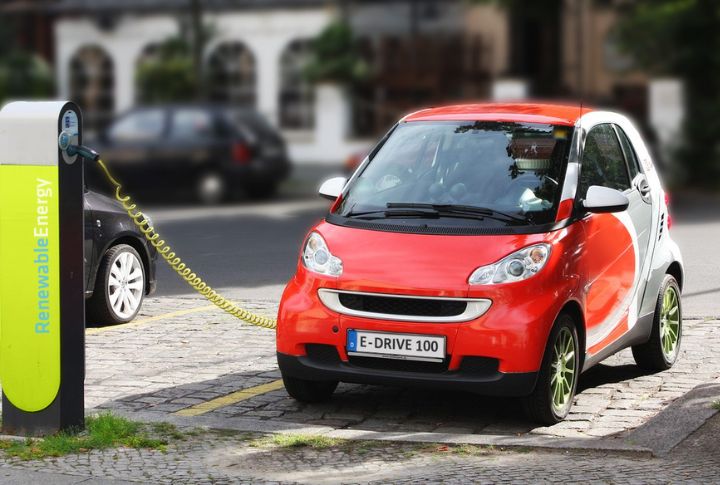
Pros And Cons Of Investing In An Electric Vehicle

Electric vehicles, like everything else, have advantages and disadvantages, and deciding to go that route depends on individual priorities and circumstances. While EVs have significant environmental and economic benefits, challenges such as infrastructure and initial costs remain. Here are 15 points to consider when weighing the pros and cons of electric mobiles.
Yay: Environmental Impact

Electric cars have zero tailpipe emissions, significantly reducing carbon pollution compared to traditional gas-powered cars. This presents a significant advantage in addressing climate change and improving air quality, specifically in urban areas where vehicle emissions significantly contribute to pollution.
Nay: Charging Infrastructure

Despite the growth in charging stations, the infrastructure still needs to be more widespread and convenient than gas stations. Although charging times have improved, they are still much longer than a quick fill-up at a pump, which causes many people to worry about traveling long distances.
Yay: Lower Operating Costs

One of the biggest advantages of EVs is the lower operating costs. Electricity is cheaper, and EVs have fewer moving parts, resulting in lower maintenance costs. Over the lifetime of the automobile, these savings can add up, making EVs an economically attractive option
Nay: Initial Purchase Price

Even with government incentives, the upfront cost of electric cars is way higher than that of traditional cars. The higher initial investment can present a barrier to consumers compared with more affordable gasoline-powered alternatives, even though prices are decreasing.
Yay: Driving Experience

EVs deliver a smooth and quiet drive, with instant torque providing quick acceleration. The absence of a traditional engine means reduced noise and vibrations, resulting in a smoother ride. Many drivers appreciate the advanced technology and the unique driving dynamics of EVs.
Nay: Range Anxiety

Potential EV buyers remain concerned about running out of charge before reaching a charging station. Although EVs are improving their range, they still have a long way to go to match gas cars’ range, particularly on long trips.
Yay: Government Incentives

Many governments give lucrative incentives, such as tax credits, rebates, and lower registration fees, to encourage the purchase of EVs. These initiatives can help offset the higher initial costs and make EVs more accessible to a broader range of consumers, boosting their adoption.
Nay: Battery Life and Replacement Costs

While EV batteries are designed to last many years, they degrade over time, reducing range and performance. Replacing a battery can be expensive, and concerns about long-term durability and costs can deter potential buyers from switching to electric.
Yay: Energy Efficiency

Electric vehicles are more energy-efficient than gasoline-powered cars. They convert more energy from the grid to power the wheels, whereas internal combustion engines lose a significant amount of energy as heat. This efficiency makes EVs a greener option.
Nay: Battery Production Environmental Concerns

Mining and producing lithium-ion batteries in EVs have significant environmental impacts, including resource extraction and energy-intensive manufacturing processes. These concerns raise questions about the overall environmental benefits of EVs, especially when considering the car’s entire lifecycle.
Yay: Resale Value

The escalating demand for electric vehicles notably boosts their resale value, particularly for reputable EV brands. As the market expands and matures, the depreciation associated with gasoline-powered cars is less pronounced for electric models, making them a more financially attractive long-term investment.
Nay: Limited Model Options

While the number of electric models is expanding, the variety still needs to be improved compared to gasoline-powered cars. Consumers looking for specific features, sizes, or price points may find fewer options in the EV market, which can limit their appeal to a broader audience.
Yay: Future-Proof Technology

Investing in an electric vehicle means embracing future-proof technology. As governments push for greener initiatives and the automotive industry shifts towards electric, owning an EV can position drivers at the forefront of this transition, aligning with long-term sustainability trends.
Nay: Grid Dependency

EVs rely on the electrical grid, which raises concerns about the grid’s ability to handle increased demand, especially during peak times or in areas with unstable power supplies. Additionally, if the electricity used to charge EVs comes from non-renewable sources, it can diminish the environmental benefits.
Yay: Innovation and Progress

The electric mobile market is driving innovation in the automotive industry, leading to advancements in battery technology, renewable energy integration, and smart infrastructure. These developments are paving the way for a cleaner, more efficient future in transportation, benefiting society as a whole.


